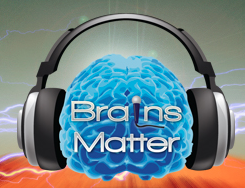Michael Merzenich Talks About Neuroplasticity (BSP 54)
/Brain Science Podcast #54 is an interview with Dr. Michael Merzenich, one of the pioneers of neuroplasticity. We talk about how the success of the cochlear implant revealed unexpected plasticity in adult brains and about how brain plasticity can be tapped to improve a wide variety of problems including dyslexia, autism, damage from disease and injury. Healthy people of all ages can also tap the resource of brain plasticity to help maintain and improve their mental functions.
How to get this episode:
Premium Subscribers now have unlimited access to all old episodes and transcripts.
New episodes of the Brain Science Podcast are always FREE. All episodes posted after January 1, 2013, are free. See the individual show notes for links the audio files.
Listen in your Favorite Audio app: Audible, Amazon music, Pandora, Spotify, YouTube and many more.
Links and References
Scientific Learning (Fast Forward™).
Previous Episodes on Brain Plasticity
Send email feedback to Ginger Campbell, MD at brainsciencepodcast@gmail.com










